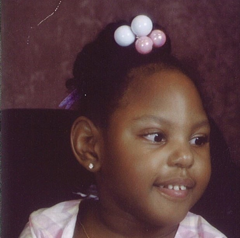Francis and Francess Bendu of Hyattsville, Md., are thrilled that their 9-year-old son, Francis Bendu, Jr. will receive a voice-output device from The Eric Fund to help him better communicate at home and in school and be in better touch with the world around him.
Francis, who was diagnosed with autism when he was almost two years old, has limited verbal communication but will use the device to talk with his family and friends and share his thoughts and feelings with others. Francis’s school speech-language pathologist, Angela Mezzomo, worked with the Bendus to complete The Eric Fund application. “We have been trying to get a piece of equipment for Francis for over a year, but everyone else told us no. We were taking a shot in the dark with The Eric Fund and hoping you would understand what a kid like Francis needs,” says Mezzomo.
Francis’s parents are looking forward to Francis communicating his thoughts and feelings more regularly with the entire family, including Francis’s older siblings, ages 27, 24 and 21, who regularly help care for and work with him. When Francis is not at school, he enjoys watching The Disney Channel, especially “The Suite Life of Zack and Cody,” and playing with his toys. The Bendus are dedicated to providing the best for their son and helping him learn the skills he needs to be more independent. “This will open a whole new world for him. This will change his life,” says Francis’s mother, Francess. “I am so grateful.”














